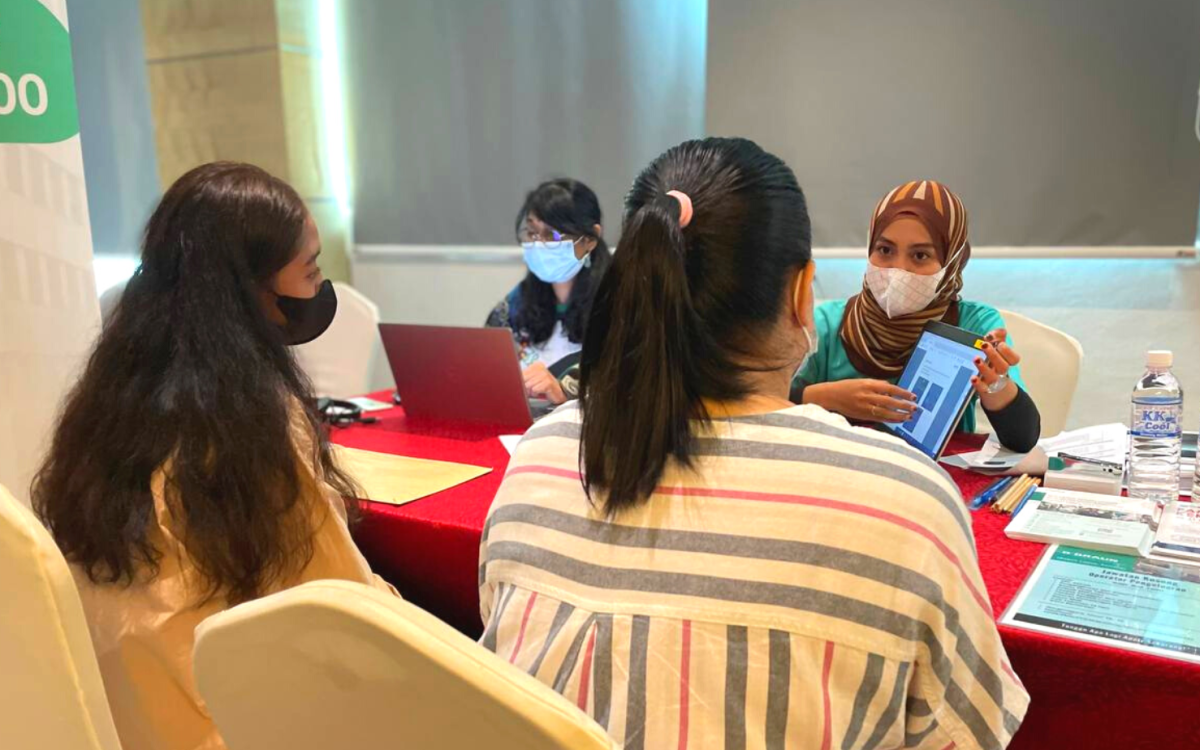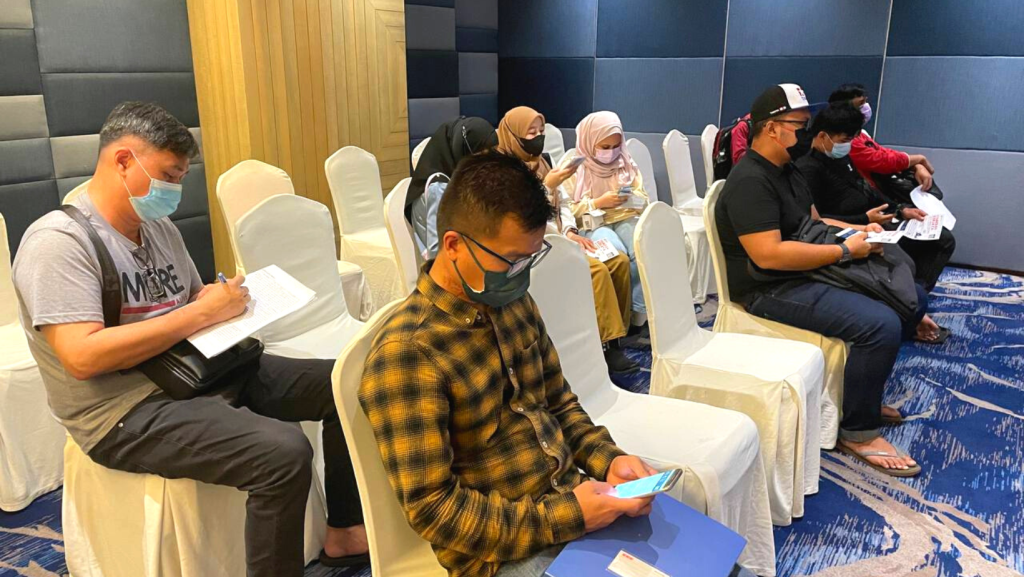Introduction
So you’ve submitted your resume, cover letter and application to a job you think is perfect for you. The problem is, there are probably hundreds of other applicants who are also qualified and eager to get that position. In order to stand out from the crowd, it’s important that you bring your own personal experiences and strengths to your interview. Here are some ways you can do just that:
The most important thing you can do to stand out is be yourself
The most important thing you can do to stand out is be yourself!
A great deal of the hiring process is about how well your personality aligns with the culture of the company. For example, if you are applying for an entry-level customer service position at a startup, it would not make sense for you to act like a stuffy corporate professional. You need to be authentic and show off your true self so that they could see how perfectly suited you are for this job. It’s also important to remember that employers want someone who will fit into their team rather than just get along with everyone else because they have similar personalities or interests. It’s more important that they find someone who can add value to their organization rather than just be another face in the crowd.

Don't overthink your answers during the interview.
Don’t overthink your answers.
Don’t get too caught up in the interview process, and don’t try to be someone you’re not. In fact, a good way to prepare for an interview is to think about what it would be like if the interviewer were someone you knew well and respected—a close friend or family member. Would you still have the same answers? If not, why would that change their opinion of who you are? And even if it did change their opinion of who you are, does that matter when applying for an entry-level job?
Maintain a positive attitude throughout the interview process.
If there’s one thing we’ve learned from watching reality television shows like The Bachelor and Big Brother is that people tend to say whatever they need to say (or do whatever they need to do) in order to advance their own personal agendas at any given moment—even if those actions later come back around and bite them in the butt later down the line! While some might see this as risky behavior on their part; I personally believe that it’s actually quite smart because it shows initiative on behalf of these individuals: they’re willing to go above-and-beyond just so they can achieve better results themselves!
Don't be afraid to use examples from outside of your work experience.
This may sound counter-intuitive, but don’t be afraid to use examples from outside of your work experience. You may feel that since you haven’t been in a particular situation before, you can’t provide an example. But remember: no one is expecting you to have all the answers when they ask questions in an interview. In fact, most people are impressed by candidates who have thought about things outside of the workplace and come prepared with answers!
In short: don’t be afraid to think outside the box when it comes to providing examples for why they should hire YOU! Here are some ideas:
Your personal life (ie: being a parent)
Your education (ie: taking a class)
Hobbies (ie: playing sports)
Volunteer work (ie: helping out at a homeless shelter). * Family members/friends who have inspired you or influenced your decisions in some way. * Community involvement – any kind of service project that you’ve participated in or spearheaded
Next, carefully reread the job description. You’ll want to make sure you can fulfill every single requirement listed there. If some of them seem like they’d be too difficult for you to achieve based on your current skillset, look at whether or not it’s possible that they might be achievable if you work hard enough and put in the hours needed (or whether or not it even makes sense for an employer to hire someone with those particular skills).
I recommend listing all of the skills and qualifications required by this position under two headings: “I have these” and “I can learn these.” Underneath each heading, list what needs improvement if any; this will help give employers a clearer picture of where they can focus their training efforts when they bring on new employees.
Be specific about how your skills will make their company better.
The most important thing you can do when you’re writing your cover letter is to be specific about how your skills will make their company better. You should spend some time thinking about the ways in which your experience and abilities might be applicable to their business, and then include examples from past experiences or other aspects of your life (such as volunteer work) that highlight those skills.
If you have a solid understanding of exactly what the job entails, then it will be much easier for you to explain why they should hire you over other candidates.
Ask the employer questions, too. It will show that you are interested in working at their company.
You should also have questions for them, too! It shows that you are invested in being an employee at their company.
In addition to the above points, you will be able to demonstrate your communication skills and problem-solving abilities through the questions you ask. For example:
Communicating effectively: The questions will show your ability to listen and take notes (i.e., “What does this mean?”). You can then go back later during a follow-up interview or phone call and share what struck you about what was said (i.e., “I thought it was interesting when you said…”).
Problem solving: This means having specific issues with which they might be able to help (i.e., “I’m worried about X”).

You have a lot of things going for you, and the best way to prove it is by being yourself. Don’t be afraid to talk about something from your personal or professional life that demonstrates a strength or skill that aligns with what the job requires. Use examples from outside of your work experience if necessary. For example, “I’ve never worked in an office before but I’m really good at managing my time so I think I could handle all those tasks.”
That said, don’t overthink your answers! If you’re like me and have trouble coming up with examples on the spot (who does??), then do some research beforehand so that when asked about something specific like customer service skills or creativity in problem solving scenarios—you can give more concrete responses than just saying “I’m good at X.” Make sure not only are they aware of how well they’d fit into this position (by researching relevant skills required), but also convey their own strengths as well!
Conclusion
The most important thing you can do to stand out is be yourself! Don’t overthink your answers during the interview, but instead trust your instincts. Don’t be afraid to use examples from outside of your work experience – they show how well-rounded you are and demonstrate that you’re adaptable in any situation. Know what you don’t know, but don’t give up! Refer back to the job description and list of qualifications so that it’s clear why you’re qualified for this position despite being new or having limited experience. If you don’t have much relevant experience, know what skills you learned are relevant and how they will help you at your new job (or even old one). Give specific examples of how these skills will enable the company to achieve its goals faster than ever before.
Discussing something you mentioned in your cover letter and resume in person shows that you’re a great candidate. Finally, have questions ready for the interviewer – it’ll help them engage with you more

Exploring Korea with Fair Work Team
At FairWork, we believe that the best way to appreciate our employees is by creating experiences that go beyond the ordinary. Our recent company trip

Fair Work Malaysia Wins Multiple Awards at the HR Vendors of the Year Awards 2025
Fair Work Malaysia is proud to announce our achievements at the HR Vendors of the Year Awards Malaysia 2025, one of the country’s most respected

Top Interview Questions Recruiters Ask to Find Top Talent
Hiring great people isn’t just about resumes or technical skills—it’s about understanding how someone thinks, communicates, solves problems, and works with others. Moreover, experienced recruiters

Retaining Top Talent: Key Strategies for Local Companies
As the world becomes increasingly interconnected, professionals are no longer limited to career opportunities in their own country. With the rise of global mobility, many

How to Write a Job Description That Attracts Top Talent
A job description is often a candidate’s first impression of your company and the role. It’s more than just a list of duties and qualifications—it’s

Highlight Achievements Over Duties in Your Resume or LinkedIn
When applying for a job, your resume or LinkedIn profile is your first opportunity to impress employers. Instead of simply listing job duties, focus on


